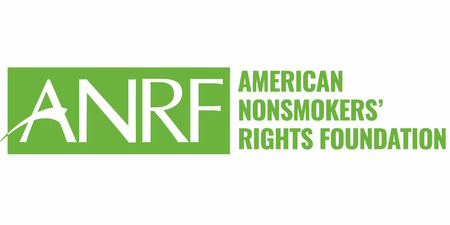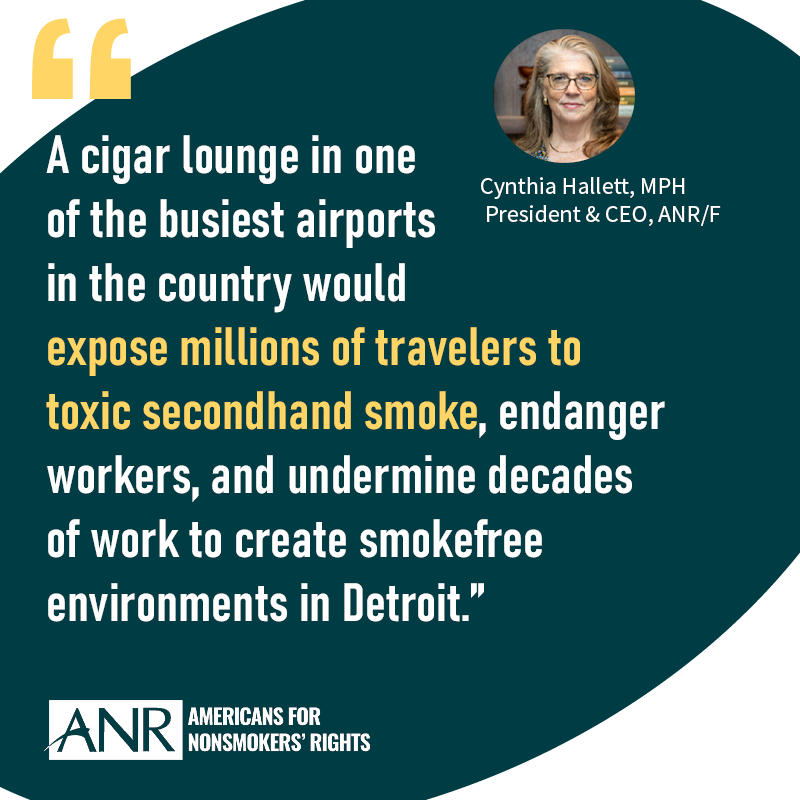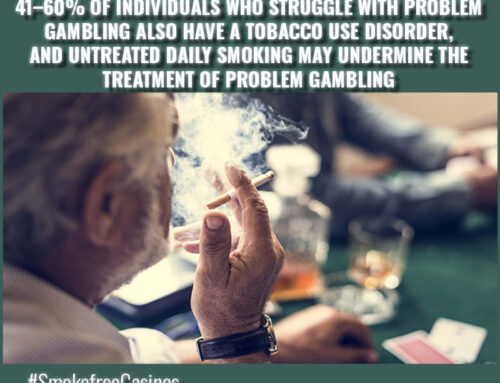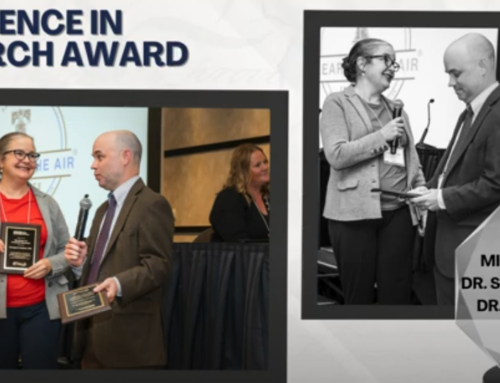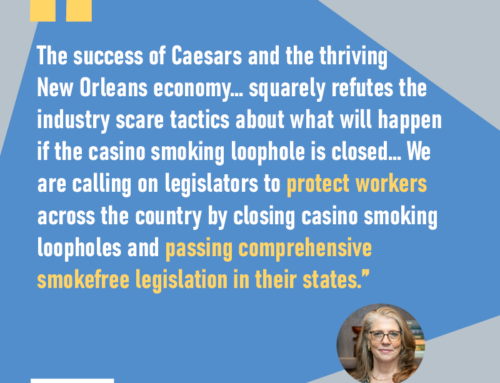Bringing Tobacco Smoke Back to DTW Would Reverse Decades of Public Health Progress

Detroit, MI — More than a million travelers passing through the Detroit Metropolitan Wayne County Airport (DTW) this holiday season could soon face clouds of cigar smoke if the Wayne County Airport Authority (WCAA) approves plans for a cigar lounge inside the airport. The proposal, presented at a recent WCAA meeting, includes a cigar bar lounge and restaurant that would expose millions of travelers and airport employees to harmful secondhand smoke.
“A cigar lounge in one of the busiest airports in the country would expose millions of travelers to toxic secondhand smoke, endanger workers, and undermine decades of work to create smokefree environments in Detroit,” said Cynthia Hallett, president and CEO of Americans for Nonsmokers’ Rights (ANR). “With the holiday season approaching, travelers already have to worry about crowds, delays, and lost luggage, adding the threat of secondhand smoke would only worsen the experience. DTW can offer plenty of other amenities that would benefit more travelers, boost revenue, and keep the air clean. There’s no need for a cigar bar.”
The introduction of a cigar lounge raises significant concerns for airport employees, who may be assigned to various roles throughout the airport including in and around the cigar lounge, putting them in direct contact with secondhand smoke. Many of these employees were likely hired under the expectation of working in a smokefree environment.
Studies in airports with smoking lounges consistently show elevated levels of particulate matter (PM2.5) in nonsmoking areas, which endangers the health of both travelers and employees. The Centers for Disease Control and Prevention (CDC) advises that “smoke-free policies that completely eliminate smoking inside airports are the only way to fully protect nonsmoking employees and travelers from [secondhand smoke] exposure.”
A coalition of local, state and national organizations, including American Heart Association, American Cancer Society Cancer Action Network, American Lung Association, Campaign for Tobacco Free Kids, Detroit Wayne Oakland Tobacco-Free Coalition, Parents Against Vaping e-Cigarettes (PAVe), and Tobacco Free Michigan, are calling on the WCAA to not go forward with this proposal, emphasizing the urgent need to protect public health and maintain smokefree environments.
This controversial proposal comes at a time when smoking rates have plummeted nationwide, with cigarette smoking among adults declining by more than 70% since 1965. DTW, which was ranked number one in customer satisfaction among mega airports by J.D. Power in 2023, risks tarnishing its reputation and alienating travelers — many of whom expect clean, smokefree environments — by introducing a cigar lounge.
Background
Tobacco use and secondhand smoke exposure kills nearly 500,000 Americans every year. Secondhand smoke puts adults who don’t smoke at risk of coronary heart disease, stroke, and lung cancer. According to the CDC, “There is no risk-free level of secondhand smoke. Even brief exposure can cause immediate harm.”
Studies have consistently shown that exposure to secondhand smoke increases the risk of heart disease, lung cancer, and respiratory illnesses. Recent research by the Centers for Disease Control and Prevention has affirmed that prohibiting smoking throughout the entirety of an establishment is the only effective way to protect workers from these harms.
Health and engineering experts overwhelmingly agree that there is no safe level of indoor smoking. Even the engineers who design ventilation systems have said, “At present, the only means of effectively eliminating health risks associated with indoor exposure is to ban smoking activity… No other engineering approaches, including current and advanced dilution ventilation or air cleaning technologies, have demonstrated or should be relied upon to control health risks from ETS [environmental tobacco smoke] exposure in spaces where smoking occurs…”
In 1990, Congress took a decisive step to protect flight attendants and passengers by eliminating smoking on all U.S. domestic flights. This milestone protected public health and ensured that travelers could breathe clean air while flying. Meanwhile, Michigan’s 2010 smokefree law ended smoking in most indoor public spaces, including airports, but allowed exemptions for cigar lounges. The DTW proposal seeks to exploit this loophole, potentially reversing decades of progress in smokefree air protections. ANR Foundation maintains a database of smoking policies in the 35 busiest US Airports. Recently, Washington Dulles International Airport updated its policy, announcing the permanent closure of all smoking lounges. This follows the transition of Hartsfield-Jackson Atlanta International Airport to a completely smokefree indoor environment.
###
Americans for Nonsmokers’ Rights (ANR) , sister organization to the ANR Foundation, is a member-supported, non-profit advocacy group that has been working for over 45 years, since 1976, to protect everyone’s right to breathe nontoxic air in workplaces and public places, from offices and airplanes to restaurants, bars, and casinos. ANR has continuously shined a light on the tobacco industry’s interference with sound and life-saving public health measures and successfully protected 61% of the population with local or statewide smokefree workplace, restaurant, and bar laws. ANR aims to close gaps in smokefree protections for workers in all workplaces, including bars, music venues, casinos, and hotels. For more information, please visit https://nonsmokersrights.org and https://smokefreecasinos.org.
Read more about ANR’s historic effort to make airlines smokefree.
